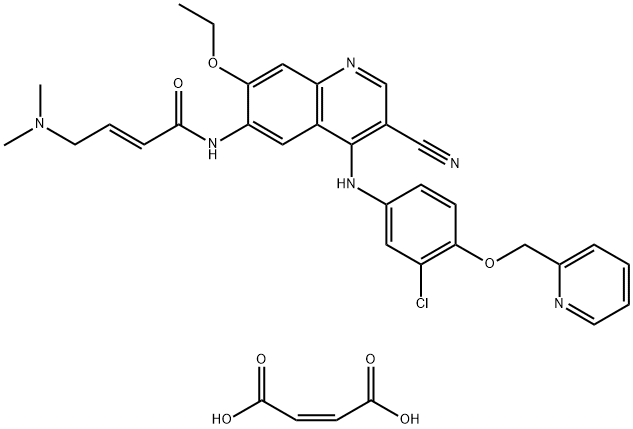SAFETY INFORMATION
| Signal word | Warning |
|---|---|
| Pictogram(s) |
 Exclamation Mark Irritant GHS07 |
| GHS Hazard Statements |
H302:Acute toxicity,oral H315:Skin corrosion/irritation H319:Serious eye damage/eye irritation H335:Specific target organ toxicity, single exposure;Respiratory tract irritation |
| Precautionary Statement Codes |
P261:Avoid breathing dust/fume/gas/mist/vapours/spray. P305+P351+P338:IF IN EYES: Rinse cautiously with water for several minutes. Remove contact lenses, if present and easy to do. Continuerinsing. |
COMPUTED DESCRIPTORS
| Molecular Weight | 673.1 g/mol |
|---|---|
| Hydrogen Bond Donor Count | 4 |
| Hydrogen Bond Acceptor Count | 12 |
| Rotatable Bond Count | 13 |
| Exact Mass | 672.2099251 g/mol |
| Monoisotopic Mass | 672.2099251 g/mol |
| Topological Polar Surface Area | 187 Ų |
| Heavy Atom Count | 48 |
| Formal Charge | 0 |
| Complexity | 1000 |
| Isotope Atom Count | 0 |
| Defined Atom Stereocenter Count | 0 |
| Undefined Atom Stereocenter Count | 0 |
| Defined Bond Stereocenter Count | 2 |
| Undefined Bond Stereocenter Count | 0 |
| Covalently-Bonded Unit Count | 2 |
| Compound Is Canonicalized | Yes |
PRODUCT INTRODUCTION
description
Neratinib Maleate is the maleate salt form of neratinib, an orally available, quinazoline-based, irreversible inhibitor of both the receptor tyrosine kinases (RTKs) human epidermal growth factor receptor 2 (HER2; ERBB2) and human epidermal growth factor receptor (EGFR), with potential antineoplastic activity. Upon administration, neratinib targets and covalently binds to the cysteine residue in the ATP-binding pockets of both HER2 and EGFR. This inhibits their activity and results in the inhibition of downstream signal transduction events, induces cell cycle arrest, apoptosis and ultimately decreases cellular proliferation in HER2- and EGFR-expressing tumor cells. EGFR and HER2, RTKs that are mutated or overactivated in many tumor cell types, play key roles in tumor cell proliferation and tumor vascularization.
